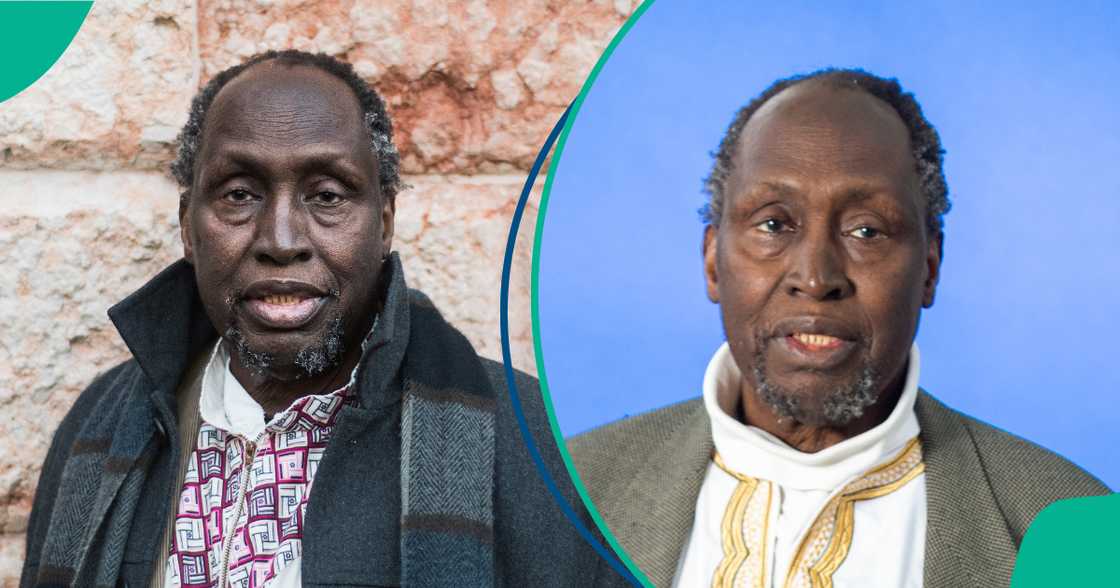Ngugi wa Thiong’o: Popular Kenyan Writer of Weep Not Child Who Wrote in His Native Language
Ngugi wa Thiong’o, the renowned Kenyan writer, has died at 87 after a 60-year career focused on colonialism, independence, and cultural change in Kenya. His legacy includes inspiring pride in African languages and culture despite struggles, exile, and attacks
Ngugi wa Thiong’o, the famous Kenyan writer best known for Weep Not, Child, has died at the age of 87.
His work, which spanned nearly 60 years, focused on Kenya’s journey through colonialism, independence, and cultural change.

Source: Getty Images
In this article, Legit.ng highlights his early life, career, struggles, and the legacy he leaves behind.
Ngugi's early life in colonial Kenya
Ngugi was born as James Thiong’o Ngũgĩ on January 5, 1938, in Limuru, Kenya, when the country was still under British rule. He came from a large, poor family that farmed for a living.
Despite their struggles, his parents sent him to Alliance High School, a missionary boarding school. As a teenager, he witnessed the Mau Mau Uprising (1952–1962), a major fight for Kenya’s independence. This event would shape many of his future stories.
He later attended Makerere University in Uganda, where he began writing seriously.
Writing career and language shift
Ngugi wrote his first novel, Weep Not, Child, in 1964. It was the first major English novel by an East African writer. That same year, he won a scholarship to study for a master’s degree at the University of Leeds in England.
He went on to publish The River Between (1965), A Grain of Wheat (1967), and Petals of Blood (1977). These books explored the effects of colonialism and the struggle for independence.
Ngugi co-wrote a play in Kikuyu, Ngaahika Ndeenda (I Will Marry When I Want), in 1977, which had a strong political message.
Ngugi's imprisonment and exile
As a result of his 1977 novel and play, he was arrested and jailed without trial for nearly a year by the Kenyan government led by Jomo Kenyatta.
While in prison, Ngugi made a bold decision to stop writing in English and began using Kikuyu, his mother tongue. He believed African stories should be told in African languages.

Read also
Another Nigerian man succeeds, makes int'l list of successful people under age 30 in art and style (photos)
He wrote his first Kikuyu novel, Caitani Mutharabaini, in prison, using toilet paper because he had no notebook.
The book was translated into English as Devil on the Cross in 1982.

Source: Getty Images
During this time, he also dropped his English name, James, to fully embrace his African identity.
In 1982, while in London, Ngugi learned of a plan to harm him if he returned to Kenya. Fearing for his life, he went into self-exile, first in the UK and later in the United States.
He stayed away from Kenya for over 20 years. When he finally returned in 2004, he and his wife were attacked.
Ngugi's legacy and personal struggles
Ngugi received many awards and honorary degrees from top universities around the world. Although many believed he deserved to be a Nobel Laureate, he never received it.
He was married twice and had nine children, four of whom also became authors.
In his later years, Ngugi's health declined. He had triple heart bypass surgery in 2019 and later developed kidney problems.

Read also
5 important things to know about Nigerian man who became new serjeant-at-arms in UK parliament
Ngũgĩ wa Thiong’o's choice to write in Kikuyu inspired many to take pride in their culture and language.
In a related story, Legit.ng celebrated women who played roles in Nigerian independence.
Ladi Kwali: Famous Nigerian potter on N20 note
Meanwhile, Legit.ng previously shed the spotlight on Ladi Kwali, a renowned potter from northern Nigeria whose artistry brought international recognition to traditional African pottery.
Many Nigerians spend the N20 note daily without knowing the story of the remarkable woman whose image graces its back.
Kwali's achievement put Nigeria in the spotlight and gained her international notable achievements.
Source: Legit.ng


